State of Horror: 'Blair Witch' Co-Director Talks Tech, Terror, and Tomorrow's Filmmaking Landscape
We speak with pioneering horror director Daniel Myrick about the future of the genre.
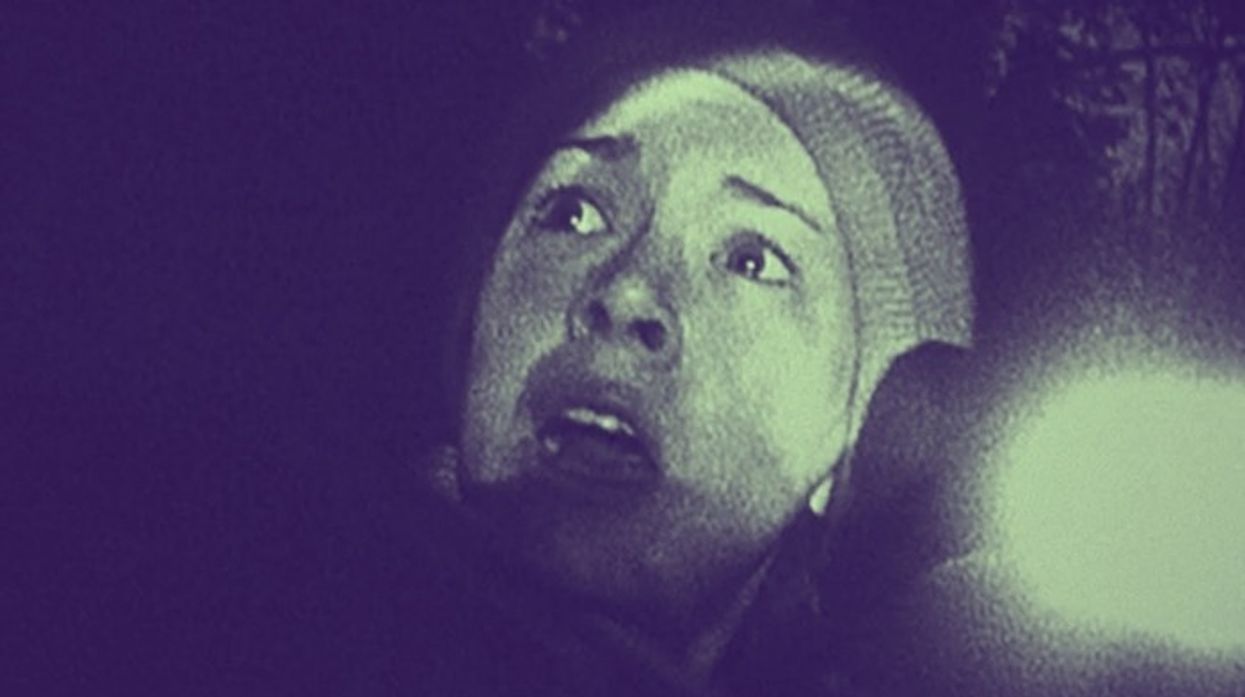
The worst possible outcome of a freelance assignment? You die at the end.
This is the kind of thought this writer was having while rewatching The Blair Witch Project in preparation for interviewing co-director Daniel Myrick for a conversation about the state and the future of horror.
It had been a spell since first seeing the film, and while of course it was scary (come on), all kinds of other elements surfaced. Suddenly, the major questions were about who these filmmakers were, going into the woods on such a strange mission. Was the young director dependable? Were her crew members smart enough for the job? The story began to seem less like a scare-fest and more like a story about work, and about trust.
And an equally thrilling story, as such! Why? Because human, ordinary concerns (like the fear of death and concerns over scope of work) are intermingled with supernatural ones. As it turns out, this mixture, this hodgepodge of the things we see and the things we don't see, interests Myrick very much. He believes firmly that the human elements of a horror film are what gives it meaning, and the scary parts are way less scary without them.
No Film School had a great conversation with Myrick recently about his work and about where horror films are headed.
No Film School: I was considering the effect of the Blair Witch Project on a lot of horror films that followed it and the way found footage has become a genre in and of itself. I'm wondering if, in years following the release of the movie, if you ever had mixed feelings about other films that were using this technique?
Daniel Myrick: Well, I'm certainly very flattered that a lot of people saw the style we did Blair Witch in and were mimicking that style. I do believe that it would have been a matter of time anyway, since we're all carrying around cameras in our pockets now, and we've all become pretty accustomed to 24/7 news and reality TV and whatnot. So, I think that style of filmmaking was inevitable, but, just like any storytelling device, whatever style you choose to shoot it in, there's still no shortcut to the writing of the story and executing professionally and doing a good job with characters and whatnot. We spent a long time on Blair Witch, making sure we had everything mapped out and making it look like none of that was done. And that's, I think, what a lot of people forget, that a lot of work went into making Blair, which looked like it was just three filmmakers who went out in the woods. And it's kind of a shame when you see when the technique is done poorly, but I'm also very excited when I see it recreated really well.
NFS: How did the technique affect the way that you directed the actors? And in turn, when you say you worked hard to make it seem the way it was, how did that affect the way you developed the characters in the film? And then also the way you directed them?
Myrick: Well, certainly the script was very important. We had that. The timelines. We didn't have the dialogue in the script, but everything else was there, beat for beat, about what was going to happen almost from one hour to the next. And we needed to make sure that all three characters had their own arcs to track. And through the casting process, both Ed and I were very cognizant of the skillset required for the kind of shooting we were going to do. It had to have a lot of improv acting, which is a slightly different style of acting than normal script reading.
So we wanted actors who were very quick on their feet and who could stay in character. So our audition process reflected that as well to make sure we got the right skill set in our actors. Because we knew, based on the script and our ability to shadow them during production, that we'd be able to control the narrative.
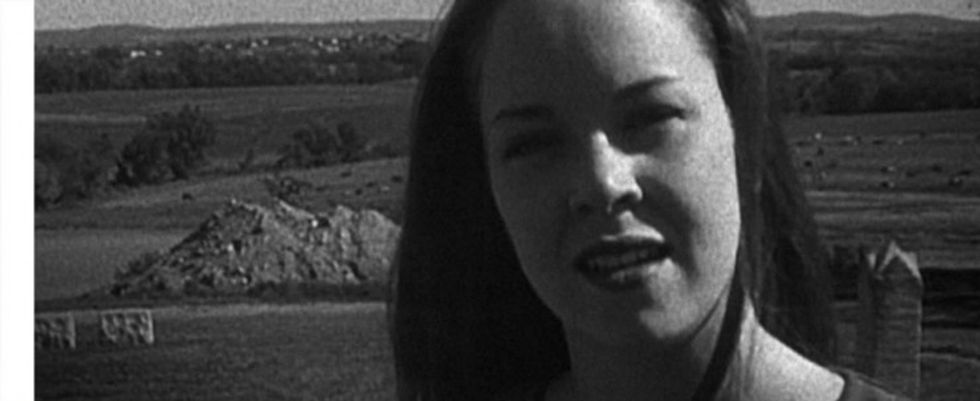
There were times when we had to step in and give them notes, but at the same time, we wanted to give them the flexibility to stay on the character's arc but have the freedom as actors to explore a little bit, so we would preserve that spontaneity we were looking for. So, it was a little bit of trusting the actors, that they understood what we were going after, and that they had knowledge of the characters and also the process by which we directed them, which included a little bit of direct interaction. Ed and I could watch the tapes at the end of each day and see how they were doing.
We were able to direct remotely, but allow this balance between having our hand and our presence there to steer the ship a little bit. But we also didn't want to be so much of a presence that it would get them out of character. So it was a fine balance, and it took a couple of days to find that rhythm. But once we did, the actors really embraced it and we got some amazing moments that we otherwise couldn't have done, had we really done a traditional form of filmmaking.
"And that's...why they have such legs and why the scares are so much more impactful and more memorable. It gets back to just story and character, regardless of the genre you're playing in."
NFS: As part of my research, I was watching an interview you gave about Skyman. What struck me most was you said that you were very concerned about making sure this was a human story you were telling, about people. And I'm wondering how that attitude has evolved as you've gone forward?
Myrick: For me, the human element to any story is really what the story is rooted in. I have nothing against fun, big-budget rollercoaster movies, but they're always better movies if you're invested in the characters. Anybody can... I shouldn't say anybody, but the easy part is throwing in all the visual effects and all the action sequences. It's certainly the biggest budget part, but it's also the easy part.
The harder, more nuanced part is the human element. Getting the audience to really identify and root for, really believe in your characters. And that requires a whole lot of thought and nuance, both in the casting process and in the script process. In real stories, that's their heart and soul, the characters that embody them. And if you're really believing in the characters, if you're really liking the characters, then all your laughs are going to be better, all your scares are going to be better. All your action scenes are going to be better.
That's just what I believe. And those are the kinds of movies I like to watch. I like films where you're really invested in the character, no matter what kind of a movie it is.
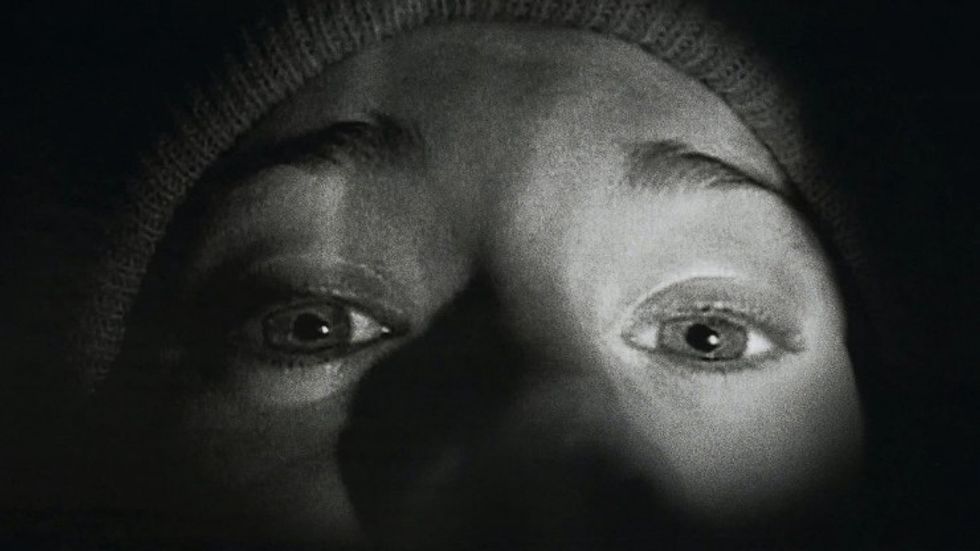
Myrick: Absolutely. I think television has been largely responsible for that. I think a lot of people don't seem to realize that the movies that I grew up on, like The Omen and The Shining and The Exorcist are less horror films than just great movies. When you really break down the story and characters in The Exorcist, that's an incredible story. Same goes for Jaws. As huge a blockbuster as Jaws was, watch that through. It's a great script.
And so I think we still just come back to that. Where you see films like Hereditary and Get Out and things like that—A Quiet Place. These are character-driven horrors, right? And you're identifying with these characters in films that could hold their own in an Oscar race with any drama.
And that's, to me, why they have such legs and why the scares are so much more impactful and more memorable. It gets back to just story and character, regardless of the genre you're playing in. If you're invested in those characters, in their dilemmas and their conflicts, their happiness and their falls, everything else is amplified. All the laughs, all the sorrows, all the scares are all amplified.
"Suddenly everyone's like, 'Wow. Now we're seeing all the smart horror come out.' Well, we've always wanted to do smart horror. They just weren't letting us."
And again, that just takes good, talented storytelling. And it's not easy. I think horror, in particular, has gotten short shrift in the awards department because it does have the advantage of being a genre a lot of not really talented filmmakers can default to, because you can just throw some scares up, have a cat jump out of a closet, and you get your reactions.
But everyone forgets about the movie. But we're seeing this resurgence in really character-driven horror. I think, again, a lot of it brought on by the evolution of cable TV and real thoughtful sci-fi and thriller and suspense films we're seeing in television now. It's really informing, I think, to a lot of filmmakers on the feature side as well, that people want this stuff.
I mean, I look at Joker as a perfect example of a comic book universe, a film that none of the studios wanted to make, a dark, brooding character study that's really depressing, that ended up being the most profitable film in the franchise. So, who would have thunk it? But it is just like Silence of the Lambs.
You can always go back and watch those films and get something more out of them. There's just so much meat on the bones of the characters and their dilemmas and their stories that really is the result of just really talented filmmaking and writing and execution. And that's, again, that's hard. It's hard to do, and it's not commonplace. I like seeing getting back to that in the horror genre.
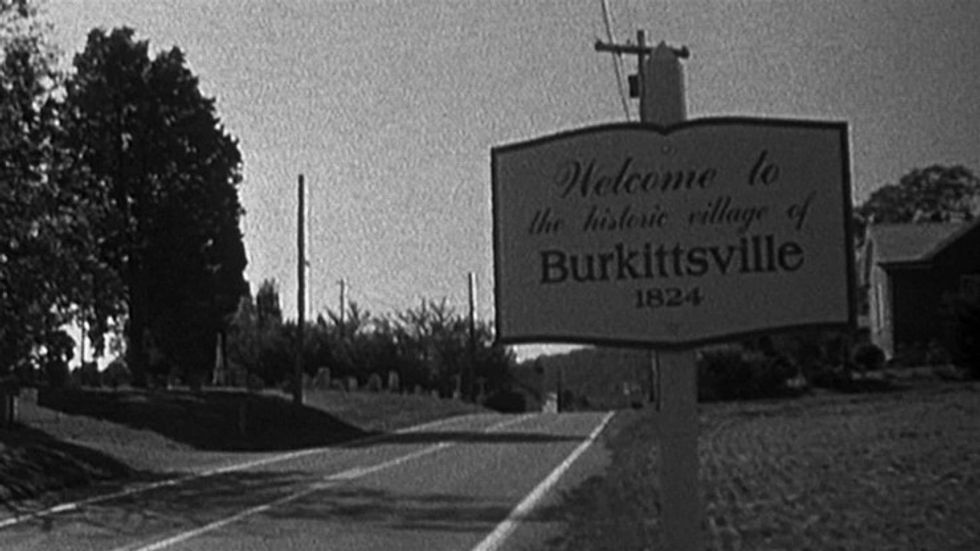
NFS: One thing about television is that it's episodic. A lot of the times the scares you might get could possibly be delayed. Do you think that's affecting the way the genre is developing? Do you think there's a correspondence there?
Myrick: I think with any storytelling that seems to resonate in some way, on that level, you always see risks being taken. And I think with the advent of cable TV, influenced a lot by HBO, films were influenced a lot by networks that aren't really ad-driven. They can throw some shit against the wall and see what works. They can attract the best of the talent in Hollywood because they're not worrying about a box office necessarily, but they've already got a subscriber base, so they can say, "You guys, here's some creative control, go do what you want." And we've seen some amazing results. At the end of the day, it takes risk. You have to take risks.
And studios and traditional network television just are not set up to take those kinds of risks. I think what has happened is that some of those risks that have been taken have really resonated and have really been commercial successes, especially in the horror genre. And it's informed, I think, a lot of what we're seeing coming out on the feature side. And then you see some real commercial successes on the feature side.
Suddenly everyone's like, "Wow. Now we're seeing all the smart horror come out." Well, we've always wanted to do smart horror. They just weren't letting us.
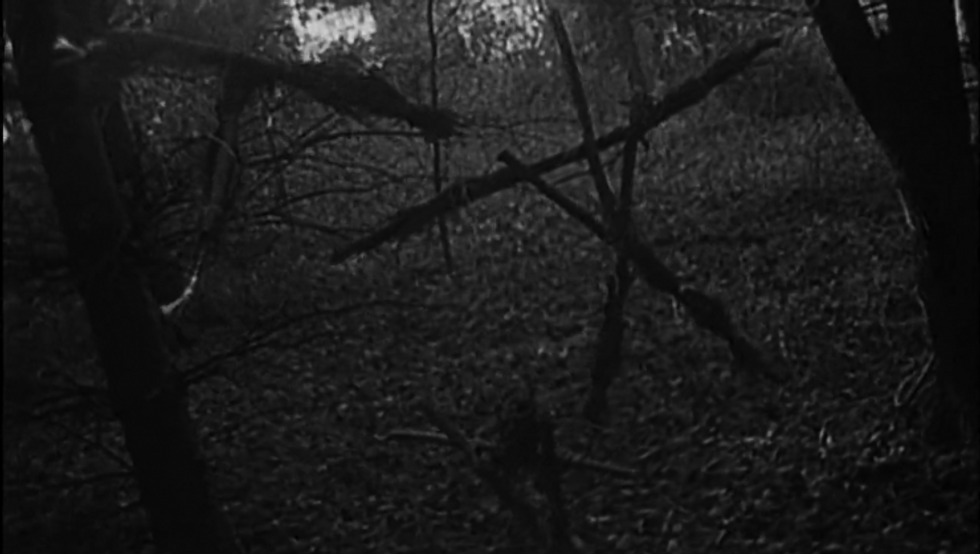
NFS: You mentioned technology earlier and the fact that so many people have more ability to make films themselves and do a lot of things they weren't necessarily able to do before. How do you think that'll affect the way horror films develop?
Myrick: Well, certainly it will lower the bar for entry, as I think the technology has enabled that, as have the platforms. You can now get your stuff seen by millions of people. And so that's an incentive as well.
So, you can really produce high-quality, production value material with the cameras that are available now and the post-production and visual effects that you have on your laptop. There's really no excuse to not have stuff that looks good and has the production quality, technical production quality, that you would see in most any kind of film. And that's exciting because if you've got the talent and if you got the chops and you hire the right actors, and the actors can pull it off, the technical aspects are there for you to really be one step removed from the big-budget films in Hollywood.
"There's just no shortcut for that, no matter how good the technology is. Whether you're typing or writing it on a note pad, or you're typing on a $3,000 Apple laptop, you still have to type in the words and make those characters come to life."
I've seen amazing work on YouTube and visual effects that cost next to nothing that could hold their own in a Hollywood studio environment. And so that's pretty exciting. However, at the same time, it's still not a crutch. You're still staring at a blank page like we have been for thousands of years, having to come up with characters, situations, dialogue, story arcs, story beats that work and resonate, that people can identify with. And that comes with life experience. That comes with innate talent. That comes with skills and practice and doing it and doing it and doing it.
And there's just no shortcut for that, no matter how good the technology is. Whether you're typing or writing it on a note pad, or you're typing on a $3,000 Apple laptop, you still have to type in the words and make those characters come to life.
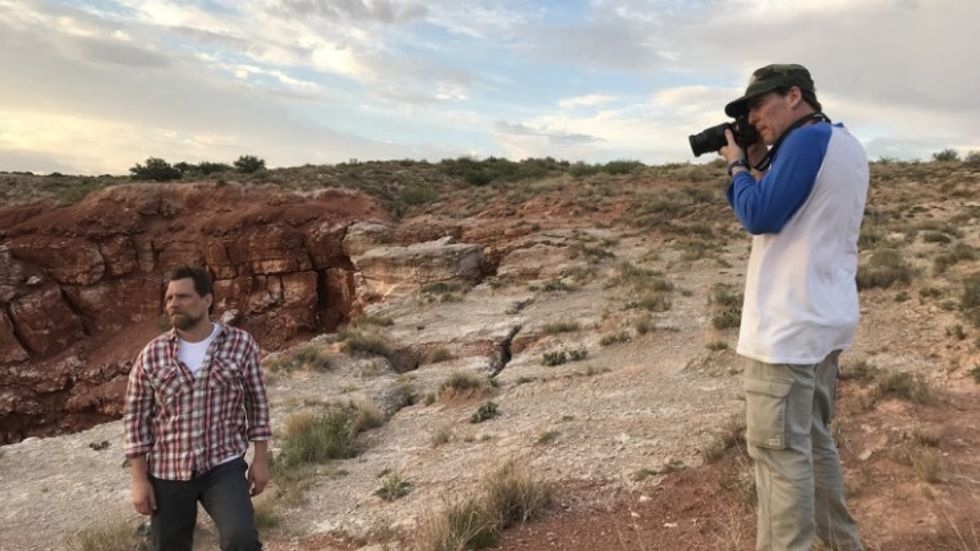
NFS: How has the technological development affected you and your work methods since you started? And how has that changed the way you work, or has it?
Myrick: I can do more. I started out as an editor, then I DPed for a few years, and I've written almost all my scripts. So I've been a man who's worn all the hats and is an independent filmmaker to a fault. For me, as a filmmaker, as an artist, the writing, shooting, editing process is all part of the same animal. And now it all overlaps more now than ever. Now, you're shooting something and you're starting to edit it right there on set, and then you take it back on your computer and you're color grading it between takes.
Everything's not nearly as compartmentalized as it used to be. The technology has allowed us to do stuff more in real time now. So having an understanding of all these different disciplines makes me a better director on set. And that's just the way I work. That's just my personal preference. I like having my hands in all aspects of the film process. Not that I have to be, depending on budget, but being able to talk to an editor and know how to talk to an editor, being able to talk to a DP and know when you've got the scene in the can—they're appreciative of it because you're not shooting a bunch of coverage you don't need. Understanding the technology and embracing it has made me a better filmmaker. So that's what the technology has allowed.
It's not all these walled gardens like it used to be. I mean, I remember going into big post-production houses in LA and sitting in the big cushy chairs with the hot muffins rolled in, and you're doing your color grading. It's $600 an hour at post-group or whatever.
And that was just off-limits to normal people. You had to go in there for a week and get your job done and get out of there. And there was no tweaking after that. So now you can experiment and play around, and a look you thought was amazing two weeks ago suddenly is not doing it for you. So it can evolve with you as you're cutting the film. It's really quite incredible.
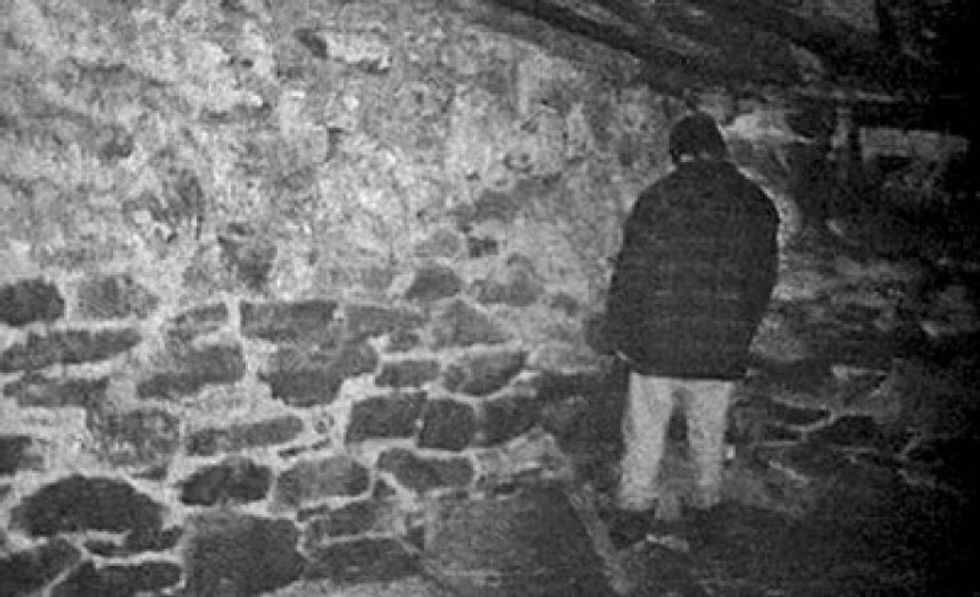
NFS: Are there favorite cameras and lenses or other equipment that you like to use?
Myrick: Well, I've used pretty much everything out there. I'm a big fan of Blackmagic products. I use Resolve for editing. I've used Blackmagic cameras for years. To me, they were the leader in making high-quality visual acquisition accessible to the common man.
I mean, I still have my original Pocket Camera that I got when it first came out. I shot a feature film on that thing. And to this day, I would put it up against an Arri any day of the week. Whatever secret sauce they used in their centers, it just looks very cinematic to me. And I've shot with Alexa and I've shot with Sony. But for the money, Blackmagic is very, very hard to beat.
And I've combined that with the Resolve workflow, which has evolved considerably since I first started using it. And now you've got Fusion and Fairlight on the audio side. You've got an all-in-one solution that delivers really high-end product. And for the starting filmmaker, for $2,000 or $3,000, you can be shooting stuff that looks like it could go up on the big screen.
You've got those technical bases covered. Can't say anything for your talent, but technically you can pull it off. And that's pretty impressive, considering that the cost of a one-seat installation for Resolve 20 years ago was 150 grand. Now you get the software for free. So it's amazing what you can do with that stuff.
But I've shot Sony, too. With Skyman, we shot both Sony and Blackmagic.
I use Sony A7S II for a lot of low-light stuff. So that's a great camera as well. And then we used an Alexa on this horror anthology we're shooting in Florida with Cooke lenses. We were at the high end of the scale on that one. But for young, independent filmmakers, Blackmagic is really hard to beat right now. They just came out with a 12K camera, but their off-the-shelf stuff is really good, and I've always had really good results with it.
"I do believe people still want good stories. They want good scares. They want good execution. That'll never go away."
NFS: Well, one other question I have that's related. In terms of the future of the development of horror films, how do you think the experience of this pandemic is going to affect that or shape that?
Myrick: As a result of the pandemic, since we're on hiatus for this anthology we're shooting in Florida, I, Jeffrey Reddick, who is a creator of the Final Destination franchise, and our friend Daniel McBride, who did Underworld, have teamed up and we're starting this Quarantine Creepfest Film Challenge online for short horror films from young filmmakers. They're in lockdown at their house and they're bored and they break out their cell phone and shoot a horror short. You can go to the website and get the rules and all that, but you can win a Blackmagic film package with it, or a cinema camera package and some cash.
But we're trying to encourage young filmmakers to go shoot some short films. They're going to be looked at and judged by some "horror legends" in the business. And just to encourage young filmmakers to be shooting stuff. And it's all online. It's all kind of a result of the pandemic... of the quarantine we're all having to suffer through right now.
That's us looking for a silver lining in all the clouds, to keep cameras rolling and keep people active and thinking and creating. But on the more traditional side, we're on hold right now. We've shot one pilot episode for this Black Veil project that we're doing in Florida. And we had five other episodes. As a matter of fact, Jeffrey and Danny were going to be involved with a couple of episodes.
"I know a lot of writers who are grappling with that... How do we portray a contemporary film amidst the pandemic right now?"
So, we've had to hold off and see where everything lands because production protocols are pretty laborious right now. And when you're working on such thin margins, like we are, you can't afford to shut down if someone gets a positive test result. You're done if you have to shut down for a week or two. And so that's really tough to overcome. But I'm optimistic that, as the treatment improves and we get a vaccine, hopefully in the early part of next year, and everyone has it contained and under control, we're going to find our sea legs again, and we can get back into our rhythm. We can all get back to shooting. I think it may certainly change things for the long term.
I think in exhibition, I think movie theaters are going to have a hard time for a while. They were already operating at really, really thin margins before the pandemic. And it certainly has forced us all into this online experience now. Those of us that were on the fence, who weren't consuming almost everything online, now are. So, I think that might be more of a permanent shift. A tectonic shift in our consumption will be more online than it was before.
But it's a hard thing to predict. I have to be optimistic otherwise I won't get any sleep, but I do believe people still want good stories. They want good scares. They want good execution. That'll never go away. So we just have to figure out what's the best way to produce it and deliver it to our audiences that we know are out there, so that we can all make a living doing it... and hope that the Netflixes and the Amazons of the world don't just scoop up all the profits for themselves and nobody else gets any breathing room.
So we'll see how that all shakes out, but there's a high demand for content. So that's the good news. So once the cameras start rolling again, there'll be a super, super high demand for it.
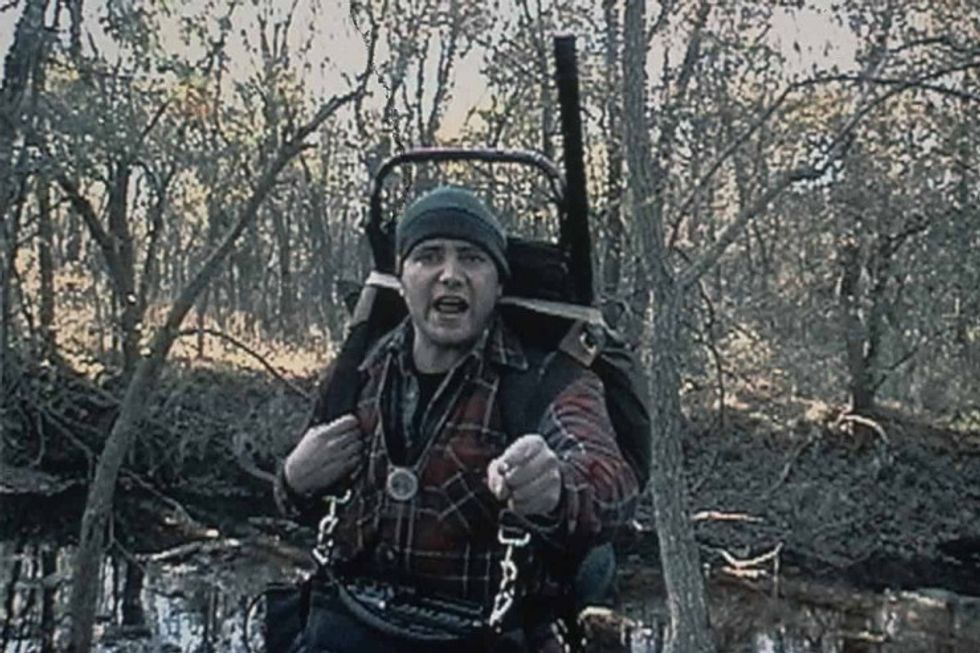
NFS: Do you think there'll be a demand for different kinds of stories, maybe in particular in the horror genre or other areas? Do you think that will change?
Myrick: I don't know. As a writer, I'm starting another script actually as we speak, and then I'm thinking, well, what world am I in right now? Is everyone wearing masks now? Is this a world where everyone's wearing masks? We're all socially distant and you walk down Fifth Avenue in New York and there's nobody around. How do you write those scenes?
And it really is this existential crisis: do I just pretend none of it is happening and we just go back to 2019 and write it that way? Because you don't want it to just distract. You want to have a scene where everyone's not saying, "Oh, look, it's COVID and everyone's wearing masks in the shot."
I honestly haven't really quite figured that out yet. I know I've got a couple of horror stories that I want to write, but they're isolated in the woods. I've got one that takes place in the Everglades. So I can get away with really not being aware, outside of maybe somebody mentioning it, of what's going on in the outside world so much. But I know a lot of writers who are grappling with that right now. How do we portray a contemporary film amidst the pandemic right now? And we don't want to be insensitive, obviously, but at the same time, it's not quite normalized for people. So if they see a scene in a restaurant and everyone's wearing masks, everyone's going to be conscious of them.
Dig this spooky post? Then check out the rest of our Horror Week coverage for more tips, tricks, and terrifying takes.
- Insights From Shooting One of the First Horror Films on the Blackmagic PYXIS | No Film School ›
- How Writer-Director Sophia Rivera Uses '80s Horror Nostalgia to Fuel Her Work | No Film School ›
- Scare Your Way From Zoom to Stephen King With Rob Savage's 'The Boogeyman' | No Film School ›
- Explore the Horrors of Food Delivery With Indie Filmmaker Julian Terry | No Film School ›
- How Colorist Mitch Paulson Nailed the Eeriest Looks in Modern Horror | No Film School ›
- Dig Into The Immersive Horror Scene with Writer, Producer, and Streamer Saige Ryan | No Film School ›
- Create Horror Films for Under $10,000 With These Tips | No Film School ›
- The 'Curse of the Sin Eater' Crew Opens Up About What Gear is Essential to Shoot Horror | No Film School ›











